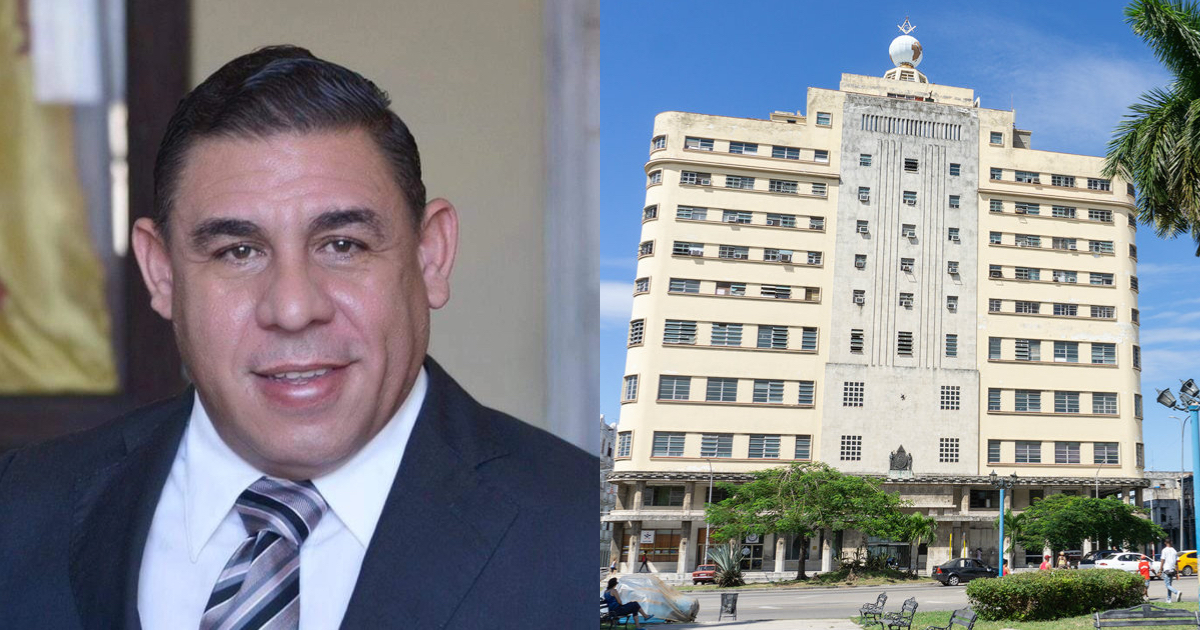What should be and has always been a discreet organization is now embroiled in scandal after scandal in Cuba. Four Masonic lodges on the island have been suspended for refusing to recognize the leadership of Grand Master Mario Urquía. Urquía has been highly criticized for opposing his expulsion, which was decreed by the Supreme Council in January this year after $19,000 was stolen from his office.
According to Cubanet, the suspended lodges are Evolución from Artemisa, and the Havana-based lodges General Guillermo Moncada, Luz de Marianao, and Carlos Manuel de Céspedes. The sanction, imposed four days after protests outside the Grand Lodge of Cuba, will remain in effect until the next session of the High Chamber. Urquía claims that the lodges are violating Masonic laws, the Masonic constitution, and the Ancient Landmarks of Masonry.
Protests and Controversies
On July 24, Grand Master Mario Urquía sent a message to nearly 200 Cuban Masons who had protested on July 23 in front of the Grand National Masonic Temple, demanding his resignation. In a message accessed by Cubanet, Urquía criticized some members of his jurisdiction for putting their personal interests "above the interests of the Institution." He noted that the protest started in front of the building and ended in the lobby of the 11th floor, outside the Grand Master's office.
In the same message, Urquía criticized independent journalist Camila Acosta, accusing her of having access to information that "a profane" should not have and alleging the infiltration of dissident elements into the Grand Lodge. "Some brothers have shown clear signs of directly attacking government institutions with marked political positions, which for many are disguised as supposed Masonic motives," he said.
According to testimonies collected by Cubanet during the protest in front of the Grand Lodge of Cuba, the Masons explained that they were protesting after the Ministry of Justice of the island reinstated Urquía despite his expulsion for "violating morality" and "betraying principles." Therefore, the protest was not only against the Grand Master but also against the regime's interference in the internal matters of Cuban Masons.
A notice from the Grand Lodge of Cuba, posted on the information board at the entrance of the National Masonic Temple, summoned all lodge presidents to a meeting this Thursday with Caridad Diego, head of the Office of Attention to Fraternal and Religious Affairs of the Central Committee of the Communist Party of Cuba. The meeting will be held at the Government headquarters in Old Havana.
Conflict Origins and Government Response
The conflict was triggered by Decree 1791 of July 19, with which Urquía suspended the Treaty of Friendship and Mutual Recognition between the Grand Lodge of Cuba and the Supreme Council. This action disrupted two centuries of Masonic unity and peace, forcing Masons to choose between the two institutions and jeopardizing the international recognition of the Cuban order.
On July 23, the Ministry of Justice of Cuba issued an informative note stating that it had detected "irregularities due to non-compliance with internal statutes" following the Grand Master's expulsion and ordered "those processes to be carried out again in accordance with the statutes and the will of its members."
Finally, the Cuban government yielded to the Masons' protests and agreed to hold elections. This is an unprecedented event in the history of Cuban Masonry, which included protests against the Grand Master of the Order, expelled for corruption and reinstated by the regime for his loyalty.
Understanding the Masonic Lodge Suspensions in Cuba
Below are some frequently asked questions to help readers understand the complexities of the recent suspensions and protests within the Cuban Masonic lodges.
Why were the four Masonic lodges suspended?
The four Masonic lodges were suspended because they refused to recognize Grand Master Mario Urquía's leadership, following his controversial reinstatement by the Ministry of Justice after being expelled for financial misconduct.
What triggered the protests against Mario Urquía?
The protests were triggered by the Ministry of Justice's decision to reinstate Urquía after his expulsion for "violating morality" and "betraying principles," which many Masons saw as unjust and politically motivated.
Who is Camila Acosta and what role did she play in this controversy?
Camila Acosta is an independent journalist who was accused by Mario Urquía of having access to sensitive information and being part of a supposed infiltration of dissident elements into the Grand Lodge.
What was the government's response to the Masons' protests?
The Cuban government eventually conceded to the Masons' demands and agreed to hold elections, a notable event in the history of Cuban Masonry.
